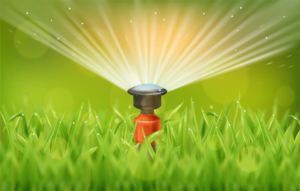
Irrigation systems are an essential element of any landscape because of their importance in promoting the overall well-being of plants, trees, and grass. In buildings, keeping the exterior area green is important to create a good atmosphere for everyone looking at the building.
A good irrigation system can be used to guarantee that the landscaping is well supplied with water without using excess water or frequently being tended to. In this article, let us learn how sprinkler installation plays an important part in landscaping to increase the overall appeal of your property.
1. Understanding Irrigation in Landscaping
Effective irrigation also has several advantages for outdoor spaces. First and foremost, it controls and automizes the process of watering, guaranteeing that each zone of the landscape will get enough water. It results in healthier plants and flowers which make the surroundings appear beautiful and welcoming to visitors.
Further, the use of automatic watering also helps relieve the burden of work and time, which is an advantage since water has to be hauled manually. These systems can be set to provide water at certain periods of the day for example in the morning or at night hence minimizing water loss through evaporation.
2. Benefits of a Well-Designed Irrigation System
Furthermore, sprinkler installation is one of the widely embraced systems covering large dimensions of the landscape. Sprinkler systems can be modified to accommodate the geometry of a parcel so that water gets to all the plants and grassy areas without having wasted water in barring areas.
Valves fitted on the sprinkler head can allow the spray range to be adjusted depending on the layout of the landscaping. Water efficiency for sprinkler systems is most effective when conducted a professional to ensure that the system does not over-spray, leak, or water the ground unevenly.
3. Sprinkler Installation for Optimal Watering Coverage
Irrigation systems of the past have been enhanced modern technology that can help minimize water usage appropriately. The advanced irrigation systems apply water sensors, weather information, and time schedules to determine appropriate watering times.
For instance, these systems can decrease the supply of water during rainy seasons or increase the supply of water during dry seasons. Smart technologies applied in real estate enable better water management, water saving, and minimum expenses on maintenance as well as keeping the vegetation alive all year round.
4. Irrigation Technology: Smart Systems for Efficient Water Use
Despite the advances in technology that led to the construction of various irrigation systems, there is still a need for performing several operations frequently to maintain their functions. Routine checks of the sprinkler heads, pipework, and controls must be made to look out for signs that may indicate contracting, leakage, or a damaged part.
Any problems should be fixed immediately to avoid wastage of water or failure to cover the intended area. Maintenance is also highly required during the winter season to avoid the freezing of water left in the pipes hence causing damage. The key to achieving the proper functioning of irrigation systems, as well as achieving the proper aesthetics of landscapes, is regular maintenance and care.
